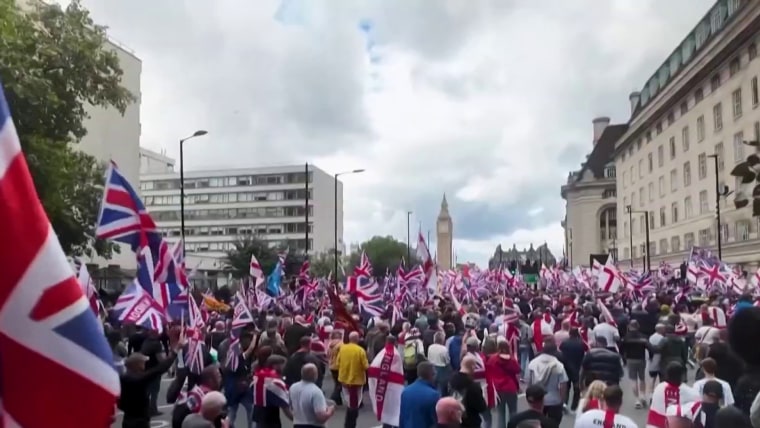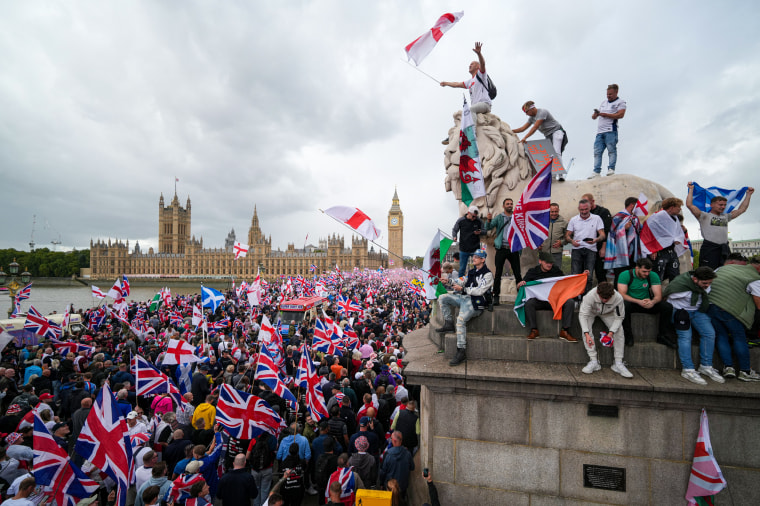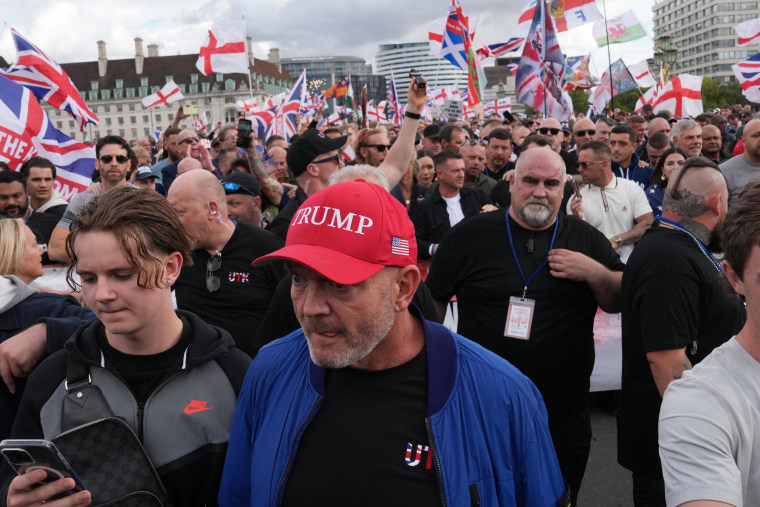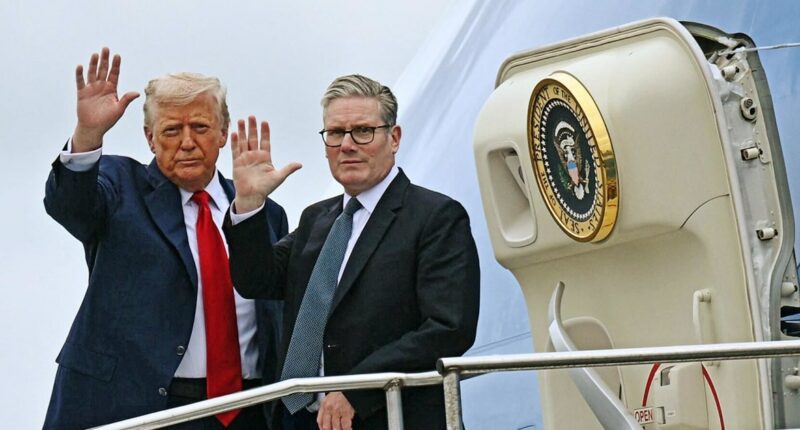Share this @internewscast.com
LONDON — President Donald Trump enjoys spectacle, but this is not what Britain had in mind.
British Prime Minister Keir Starmer has been working diligently to offer a second state visit invitation to former President Trump, commencing on Wednesday. This rare gesture aims to enhance Starmer’s influence and appeal to the American leader during a pivotal time for the UK and its partners.
Instead, Trump will arrive in a fractious Britain to meet with political leaders beset by long-running discontent and royals navigating family feuds.
If the president turns to the country’s infamous tabloids, he might see the aftermath of nationalist marches, intense discussions about the prime minister’s stance, and a family meeting over tea designed to alleviate royal disagreements.

The backdrop could hardly be worse for the carefully planned choreography of pomp and ceremony.
Last week, the prime minister’s personally chosen ambassador to the United States, Peter Mandelson, was dismissed following the disclosure of his past communications with Jeffrey Epstein, the deceased convicted sex offender and financier.
Mandelson’s appointment was initially seen as a strategic move to win over Trump. However, it has erupted into the most significant crisis of Starmer’s time in office, amplifying underlying dissatisfaction with his leadership over the past year. Additionally, Starmer’s deputy, Angela Rayner, stepped down in September after acknowledging overdue property taxes.
Starmer’s popularity has been slipping as the far-right party, Reform UK, headed by Trump supporter Nigel Farage, seizes on public unrest to gain an edge in some surveys.
These developments have intensified rumors of a potential leadership challenge—a notable turn of events for a prime minister who secured a landslide victory just 15 months ago with promises of stability.
On the streets, the mood is darker still.
A far-right march led by Tommy Robinson, a convicted fraudster with a violent criminal record, drew more than 100,000 people to the streets of the capital Saturday. Elon Musk, formerly Trump’s right-hand man in the White House, called into the rally. He urged a “dissolution of Parliament” and told attendees that “you either fight back or you die,” in comments that were condemned by Starmer and others.

While the politics look volatile, Trump’s state visit will showcase an institution Britain has long turned to as a bastion of consistency and grandeur.
Yet, his arrival at Windsor Castle on Wednesday, where King Charles III is expected to make a speech in honor of the president, comes at a time when the royals are also under renewed scrutiny.
Prince Andrew is back in the headlines thanks to renewed coverage of Epstein, an unwelcome reminder of unresolved questions about his role. Meanwhile, the frenzied coverage of Prince Harry’s tea with the king last week has resurfaced family tensions that led father and son to go almost two years without meeting.
While Harry suggested Sunday that he wants to see his father more often, relations with his brother, Prince William, the heir to the throne, do not appear to have improved.
Starmer had hoped that hosting a U.S. president — with all the King’s Guards, red carpets and palace banquets that it will entail — would broadcast strength and competence.
But Trump’s visit, analysts say, may only amplify Britain’s domestic turmoil, rather than mask it.

“Trump’s administration tends to be very interested in the domestic politics of European countries,” said Olivia O’Sullivan, director of the UK in the World Programme at the London-based think tank Chatham House.
For Starmer, there’s “a pretty challenging landscape at home and overseas,” she told NBC News, and a likelihood that Trump may “say something or address something outside of the carefully diplomatically choreographed statements and announcements.”
The prospect of a second state visit for Trump drew criticism, with opponents accusing Starmer of needlessly flattering a deeply polarizing figure in the U.K. A mass demonstration is planned on the first day of his trip, with a further protest planned near Windsor Castle.
The risk, experts argue, is that Trump’s presence could further weaken Starmer at home.
“Trump is so unpopular with most Brits that no one — not even Nigel Farage — is going to win many voters over by being seen close to him,” said Tim Bale, professor of politics at Queen Mary University of London.
A recent poll found that 70% of Britons disliked Trump, and 44% thought his state visit should be canceled.
While many on Britain’s far right “love Trump,” he added, “an awful lot more Brits think he’s either nuts or dangerous — or both — so anyone seen to be fanboying him will get short shrift.”
While Trump will no doubt get his desired display of grandeur when he lands in London, turmoil bubbles underneath.










